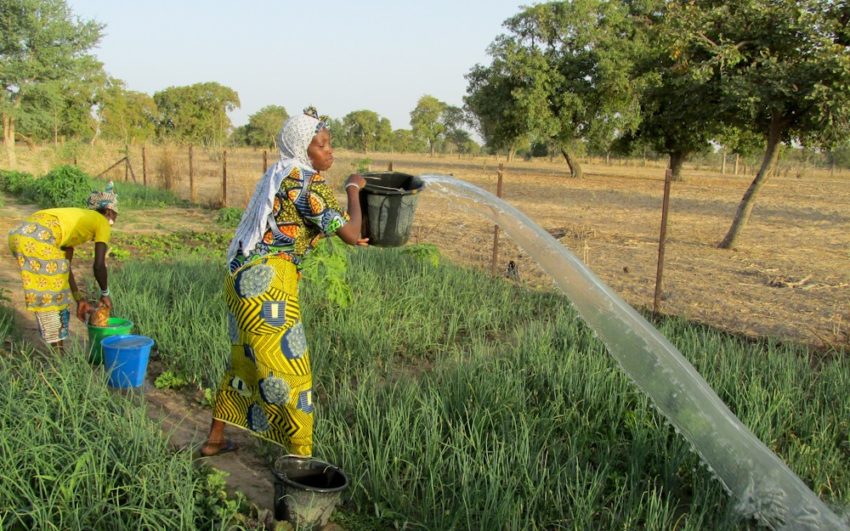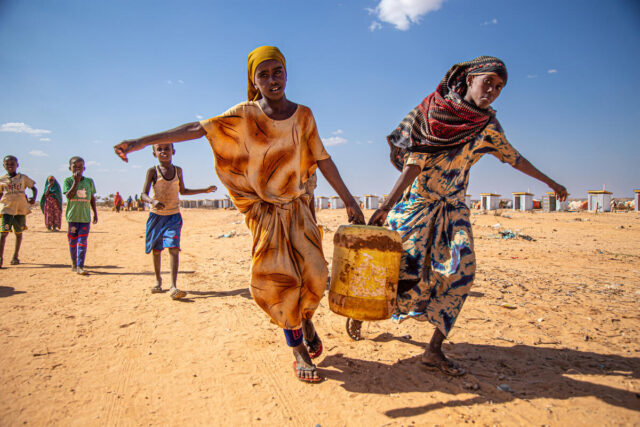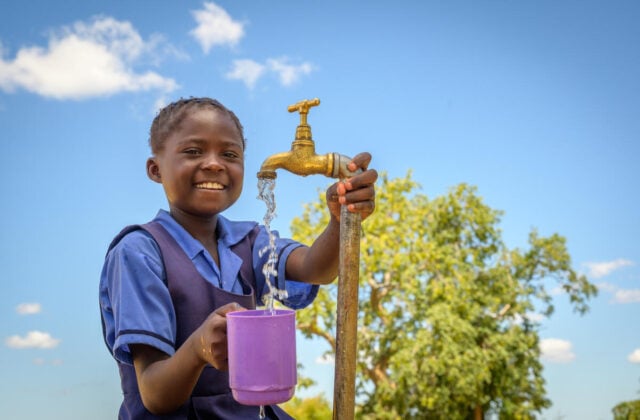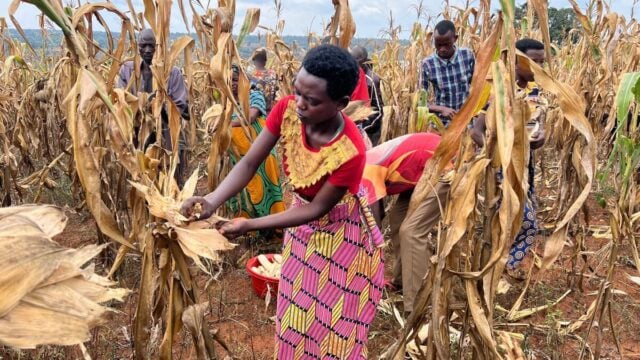Villagers gathered around the drill rig Jan. 24 under the scorching Mali sun as workers drove the shaft deeper into the arid ground. Young and old, they stood, nervously waiting, praying for fresh, clean water to bubble up from the depths.
Other well-drilling attempts through the years had come up dry. The 650 people of the rural village of Yaran in south-central Mali had spent a lifetime gathering water from a contaminated source, regularly risking illness.
They desperately needed it to work.
At 4:08 p.m., cool, clean water gushed from the new borehole on the outskirts of the village. The people erupted with joyful clapping and shouting.
The drill rig team celebrated with them, also reveling in a milestone achievement: World Vision’s 1,000th successful borehole drilled in Mali since 2003.
“Our joy was great,” says Moumouni Dao, who led the drilling team that day. “We could easily imagine how this water will change their daily life.”
Only 53% of rural Malians drink water from a clean source, according to the U.N. Children’s Fund.
This joyous occasion in Yaran was part of World Vision’s nationwide push to provide as many as 120,000 Malians per year with access to clean water and improved sanitation and hygiene (WASH).
“It was a special moment for the team,” says Moumouni. “As we were assisting this particular community, we couldn’t stop thinking that for the thousandth time we have come to alleviate the suffering of needy communities.”
First project brought clean water to Timbuktu
Working in Mali since 1975, World Vision’s first WASH project brought clean water to people in Timbuktu, a major northern city severely affected by the recent conflict. World Vision drilled its first borehole of the West Africa Water Initiative in 2003, helping 400 people, says Daniel Maizama, World Vision’s WASH director in Mali. The next year, 21,000 people gained access to clean water.
Well-drilling efforts have come a long way in a decade. Now, about 1 in 32 Malians has access to safe drinking water through sources discovered or created by World Vision teams.
“Not only has World Vision provided 1,000 wells, but we’ve worked to improve the livelihoods of communities by turning water into money,” says Dr. Greg Allgood, World Vision’s vice president overseeing water initiatives, who recently visited Malian communities in need of water projects like Yaran.
Once World Vision taps a productive well, they teach the community how to operate, fix, and regulate it. Ultimately, wells can become an economic engine. Water-use fees generate communal income and residents often cultivate enough crops to feed their families and sell the surplus for profit.
The program was able to meet or exceed nearly all of its goals in 2013 despite being forced to abandon projects in the north for a few months during armed conflict.
“Here the WASH team has a very big commitment and sense of responsibility,” Daniel says. “Yes, we have resources, but the most important thing is the commitment of the staff. It’s a team which has a heart of going further. And also surpassing obstacles.”
Water: Well-drilling precision takes a team
World Vision’s water, sanitation, and hygiene program in Mali employs four teams and five drill rigs. Here’s what makes a good drilling team.
- One lead driller, who is in charge of the drilling rig and operation — a tough job since the larger rigs are valued at $2 million. The lead driller reads the soil and ensures the drill doesn’t get stuck as the bit punches through layers of soil to reach clean water.
- One hydro-geologist works with the community and uses magnetic resonance and other tools to find the spot where they’ll most likely find water.
- Two assistant drillers assist the lead driller in the physically demanding task of running the drill rig.
- One mechanic keeps equipment in top performance, enabling World Vision to drill hundreds of wells every year.
- One driver gets the drilling unit from site to site, which can be a challenge in rural Africa.




